Published
- 03:00 am
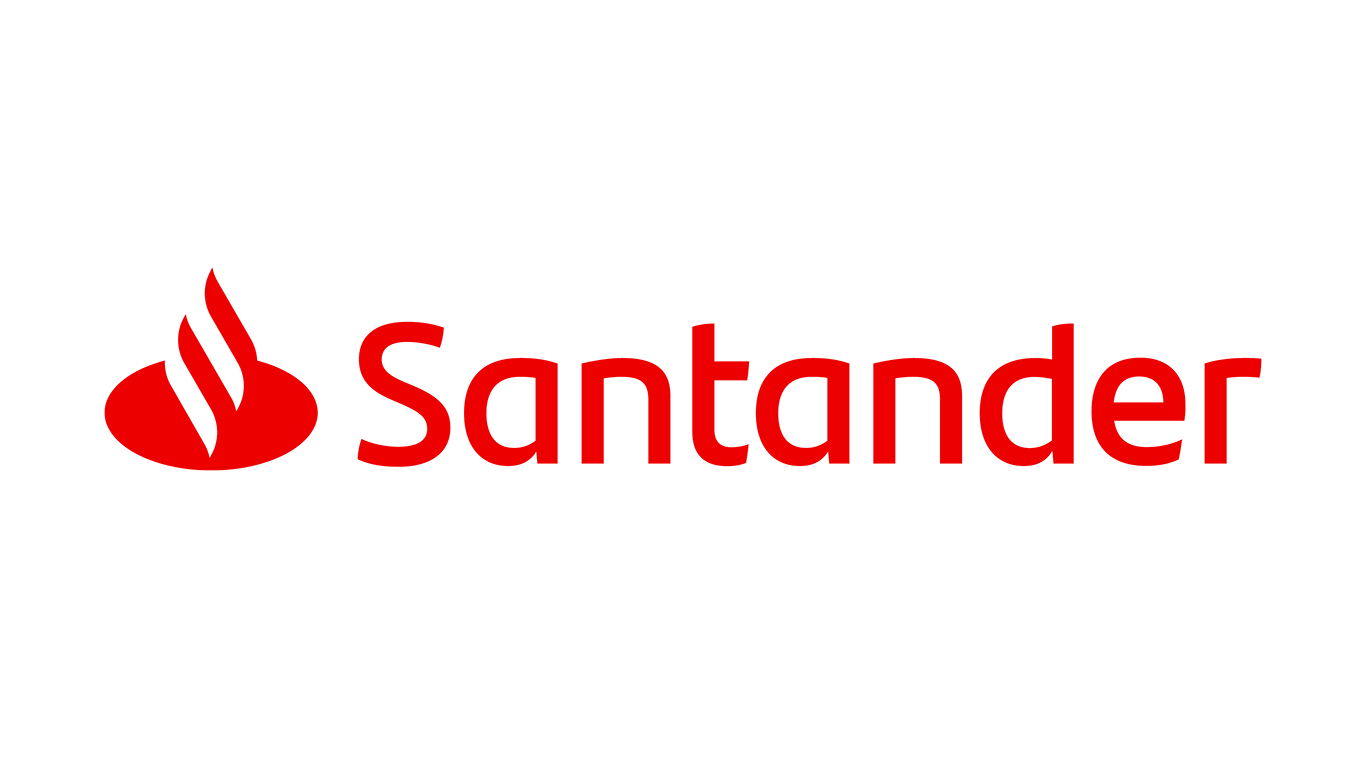
Today Santander announced the signing of a multi-year agreement with Jon Rahm, one of the world’s best golfers. Rahm is a global sporting superstar, who was born in Spain, lives in the US and has a worldwide impact, especially in some of the bank’s core markets such in the Americas and Europe. Rahm himself is announcing the agreement at today’s press conference during the Open Championship at the Royal Liverpool Golf Club (UK).
The golfer, 28, plays an average of 22 tournaments per year in the bank’s most relevant markets globally. Rahm will help the Santander brand increase its visibility in North America, where he plays most of his competitive schedule in US, where Santander has a significant presence. Rahm has 19 career victories worldwide, including two Major Championships - 2021 at the US Open at Torrey Pines and a win at The Masters Tournament earlier this year.
Rahm, currently ranked number three in the World Golf Ranking, after having been number one for 52 weeks, will wear the Santander logo on the right sleeve of the shirt he wears during all competitions beginning today, and will be part of the bank’s events and advertising. The sponsorship will also be a powerful commercial platform for Rahm to interact with Santander customers through hospitality and meet and greets.
"Jon is a top athlete, and his character and values align totally with our own. I remember playing together at a pro-am in Spain a few years ago when, after finishing the round, he spent two hours signing autographs for young fans - demonstrating his qualities as both a professional and person. As a Spaniard who has competed and succeeded globally, including in the USA where we have a strong presence, we are incredibly proud to support Jon and look forward to many years of success together." - Ana Botín, Banco Santander executive chair.
Jon Rahm said: “It is an honour to join the Santander family and become an ambassador for the global company. With a rich history in Spain, a large global presence, and a deep commitment to excellence, this partnership is a great fit, and I look forward to working with the team at Santander for many years to come.”
This collaboration will complement Santander’s other global sponsorships, such as the Scuderia Ferrari and League of Legends (LOL) alliances, with the goal of strengthening the emotional bond between Santander and its stakeholders, leveraging Santander’s brand value and communicating the bank’s mission and values.
Related News
- 06:00 am
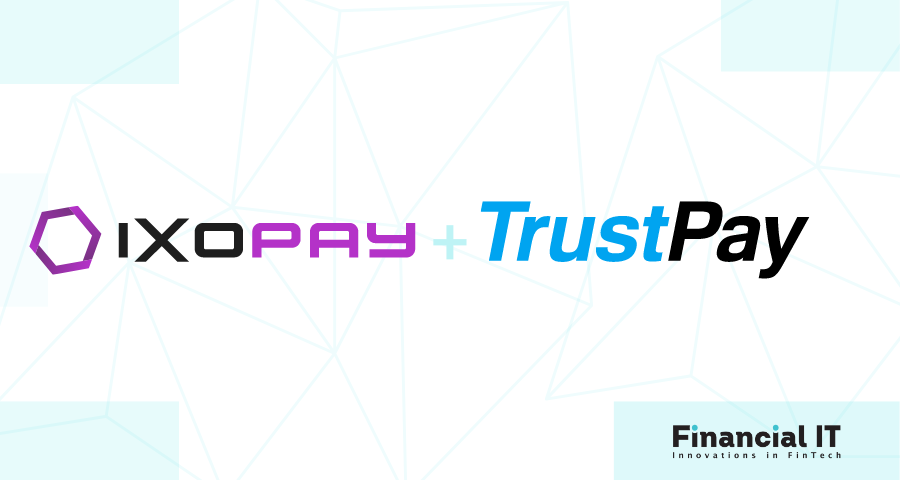
TrustPay, a leading provider of payment services, and IXOPAY, a payment orchestration platform, are excited to announce their strategic cooperation aimed at delivering enhanced payment solutions to merchants.
TrustPay offers a comprehensive range of payment services, catering to the diverse needs of businesses worldwide. Their broad list of payment methods ensures seamless and secure transactions for merchants across multiple industries. With a focus on innovation, TrustPay continues to evolve its offerings to meet the evolving demands of the global marketplace.
IXOPAY is a highly scalable and PCI-certified payment orchestration platform designed for white-label clients and enterprise merchants. Leveraging intelligent routing and state-of-the-art risk management functions, IXOPAY empowers businesses to optimize their payment processes efficiently. The platform's architecture enables centralized reconciliation and settlements, as well as plugin-based integration of acquirers and payment service providers.
The collaboration between TrustPay and IXOPAY represents a great milestone in the payment industry. By combining their expertise and capabilities, both companies will offer merchants a seamless and robust payment infrastructure. This strategic partnership will enable merchants to leverage IXOPAY's advanced payment orchestration platform and benefit from TrustPay's extensive portfolio of payment methods.
"We are delighted to partner with TrustPay and provide our clients with access to their extensive range of payment methods," said Thomas Beinhart, Partner Manager at IXOPAY. "With broad geographic coverage and additional financial services like merchant bank accounts, TrustPay reflects our commitment to providing merchants with everything they require to streamline their payments processes, enter new markets and grow their business."
"We believe that our cooperation with IXOPAY will bring immense value to merchants by offering them a powerful payment orchestration platform integrated with our diverse range of payment methods," said Karin Milková, Commercial Director at TrustPay. "Together, we are committed to driving innovation in the payment industry and providing merchants with a seamless and secure payment experience."
The partnership between TrustPay and IXOPAY represents a compelling proposition for businesses seeking to optimize their payment processes and expand their global footprint. With a shared vision of delivering excellence in payment solutions, both companies are poised to drive innovation and shape the future of the industry.
Related News
- 07:00 am

AlHuda Centre of Islamic Banking and Economics (CIBE) and Farmers Development Organization (FDO) have signed an agreement to establish an Islamic microfinance window operation. The agreement was signed by Mr. Muhammad Zubair, CEO of AlHuda CIBE and Mr. Ghulam Mustafa, CEO of FDO. The Islamic microfinance window will provide financial services to low-income and marginalized communities in Pakistan.
In his statement, Mr. Muhammad Zubair, the CEO of AlHuda CIBE, highlights the significant role played by the Islamic microfinance industry in promoting financial inclusion and poverty alleviation. Firstly, he emphasizes that Islamic microfinance serves as a crucial tool for providing financial services to low-income and marginalized communities. These communities often face challenges in accessing traditional banking systems due to various reasons such as lack of collateral, limited documentation, or exclusion based on socio-economic factors. Islamic microfinance steps in to bridge this gap and ensure that these underserved populations have access to financial services that can help improve their livelihoods.
Furthermore, Mr. Zubair believes that Islamic microfinance has the potential to transform the lives of individuals and entire communities. By providing financial services tailored to Islamic principles, such as profit-sharing and asset-backed financing, Islamic microfinance offers an inclusive and ethical alternative for those who prefer or are restricted by religious considerations. This approach enables individuals to participate in economic activities, start or expand their businesses, and ultimately uplift themselves from poverty.
Moreover, Mr. Zubair suggests that establishing an Islamic microfinance window operation can have dual benefits. Firstly, it would boost the Islamic microfinance industry by expanding its reach and impact. This would encourage the growth and sustainability of Islamic microfinance institutions and enable them to cater to a larger segment of the population. Secondly, setting up an Islamic microfinance window operation can provide a solution for individuals who refrain from using conventional microfinance services due to religious perspectives. These individuals may have reservations about engaging with interest-based financial systems, which are not in line with Islamic principles. By offering Islamic microfinance options, these individuals can access financial services that align with their religious beliefs, promoting greater financial inclusion and participation.
Mr. Ghulam Mustafa, the CEO of FDO (Farmers Development Organization), highlights the organization's purpose and approach in improving the lives of farmers and rural communities in Pakistan. FDO focus on uplifting the lives of farmers and rural communities, which suggests that they work towards improving agricultural practices, providing resources, and enhancing overall living conditions for these populations. FDO recognizes the specific challenges faced by individuals and families with limited financial resources. By understanding these needs, FDO can tailor its programs and initiatives to effectively address the issues and provide meaningful support.
The statement also emphasizes the importance of Islamic microfinancing in enhancing growth and development. Islamic microfinancing adheres to Islamic principles and does not involve interest (usury), which is prohibited in Islamic finance. Instead, it operates on profit-sharing, trade-based and/or asset-backed financing models. This approach can empower individuals to start or expand their businesses, invest in agricultural improvements, and ultimately contribute to the economic growth and development of their communities.
Related News
- 02:00 am
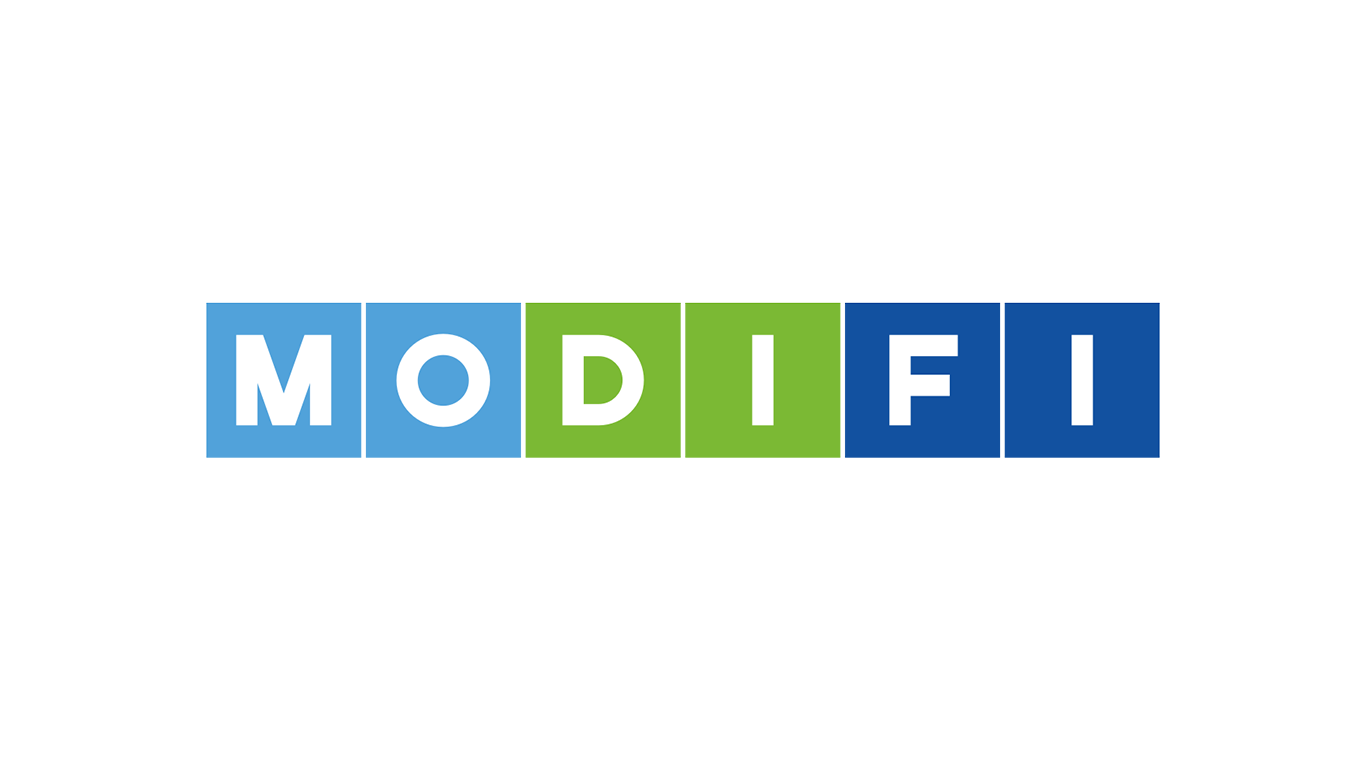
MODIFI, the global cross-border business payments company, has secured a $100 million debt facility with HSBC Innovation Banking UK to further growth.
The partnership with HSBC Innovation Banking is a key component of MODIFI's refinancing strategy, aimed at diversifying its funding sources with world-class capital providers. This comes on the heels of a $75 million debt facility MODIFI recently closed with another leading global financial institution.
Nelson Holzner, CEO and Co-Founder of MODIFI, expressed his enthusiasm about the partnership with HSBC, stating, "We are excited to partner with a top-notch financial institution like HSBC Innovation Banking to meet the growing demand of our customers for higher liquidity."
“There is a growing need for innovative solutions that remove barriers, increase transparency and enable small and midsize businesses to trade on a par with larger corporates. We are incredibly excited at HSBC Innovation Banking to support MODIFI as it continues on its trajectory to become a leading provider of trade finance products,” said Conor Sheehy, Head of Fintech Warehouse Finance at HSBC Innovation Banking UK.
Related News
- 03:00 am
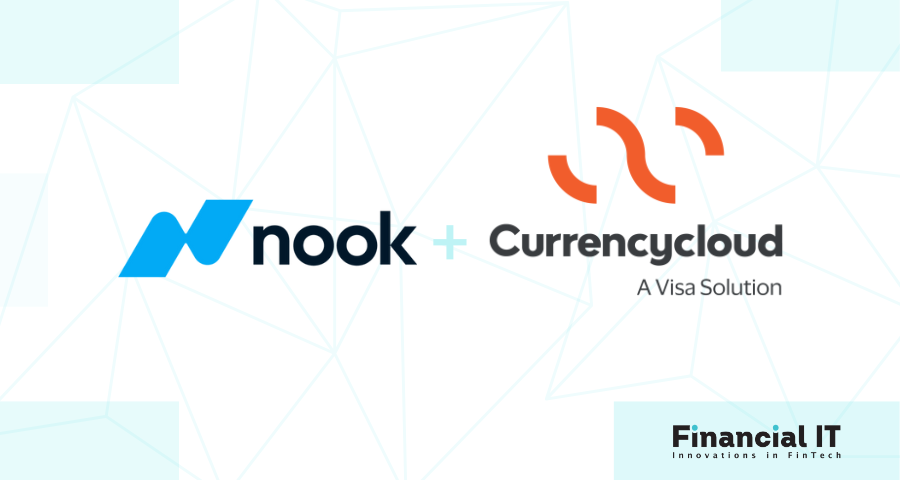
Currencycloud, the experts simplifying business in a multi-currency world, has partnered with London and Lisbon-based all-in-one accounts payable platform Nook, to enable its customers to manage the full lifecycle of supplier payments from invoice processing to payment execution, accessing more than 35 currencies in a single application.
By connecting to Currencycloud’s API technology, Nook has integrated into its platform the ability to pay invoices in more than 35 different currencies, to more than one hundred countries. This means that with a growing number of businesses working with suppliers across the globe, Nook will be able to provide their customers with a service that removes multiple transactions and streamlines the process of making payments, bringing them closer to their goal of being the tool of choice for accounts payable.
Joe Lines, CEO and co-founder of Nook confirmed: “The seamless integration with Currencycloud has strengthened our value proposition as an end-to-end accounts payable solution, and has helped us to expand our addressable market to include businesses that need to pay suppliers in multiple currencies. We’re expecting a significant uptake in new customers as well as an increase in the volume of payments being made through Nook thanks to our partnership.”
Nick Cheetham, Chief Revenue Officer at Currencycloud commented: “Backing bold start-ups as they venture into international payments has always been part of our identity. Nook’s all-in-one solution to streamline accounts payable for SMEs is a perfect example of how new companies continue to thrive in the payments business through innovation. We are eager to see how the platform can expand their customer base and further disrupt the market by integrating our seamless cross-border payment capabilities.”
Related News
- 06:00 am
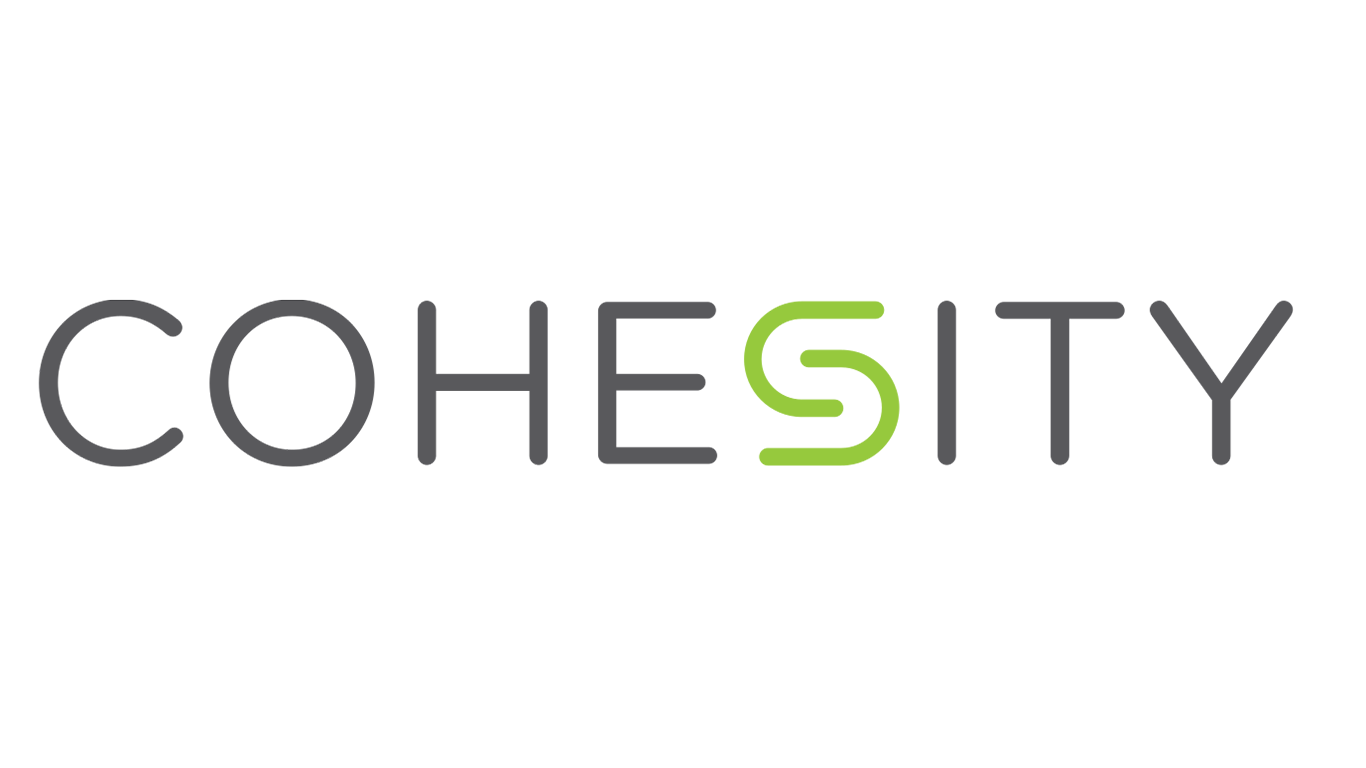
Cyber threats are increasing, capabilities aren’t keeping pace and ransom payouts and insurance cover the gaps, these are the findings from new research commissioned by Cohesity, a leader in data security and management.
As part of a global survey of over 3,400 IT and Security decision makers, 91% of those surveyed in the UK believe that the threat of ransomware attack has increased over the past year and 39% of respondent’s organisations had been a victim to it in the last six months, showing again how ransomware continues to blight the industry.
Cyber resiliency plans that enable organisations to anticipate, withstand, recover from and adapt to different types of attack aren’t keeping pace with rising threats. While over 85% of respondents’ organisations have a cyber resiliency strategy in place, only one in five (23%) have complete confidence in it and over half (53%) say that it has gaps, could be improved or they have little confidence in it. 42% say their teams are stretched too thin, while over a third of respondents (38%) say their organisation’s leadership is simply not aware of the importance of cyber resiliency, perhaps explaining why organisations are still failing to invest sufficiently in skilled people and solutions. In fact, 70% of respondents believe that they currently lack enough skilled workers to respond effectively to a data breach or loss.
“A cyber resiliency strategy that prioritises the ability to recover from a cyber-attack is arguably more important than one that focuses solely on prevention,” said James Blake, CISO EMEA at Cohesity. “But all the time that companies try to pay their way out of trouble with ransoms, insurance or warranties is throwing money in the wrong direction as this won’t help them recover the data and processes that keep the organisation in business. The gaps aren’t in prevention or even in the workforce, the gaps that need bridging are in the c-suite taking the threats seriously and investing in tools to rapidly recover from attacks.”
Data recovery capabilities
Despite these concerns, 95% are confident they can recover data and critical business processes in the event of a data breach or loss, although 68% said it will be touch and go or they have limited confidence. About a third (37%) cited a lack of coordination between IT and security teams as the biggest barrier to getting the organisation back up and running, a similar number (31%) said that lack of a recent clean and immutable copy of data would be their biggest hurdle. 52% of respondents believe they would recover data and business processes in under a week (1-6 days) and a leading 3% believe they could do it in under 24 hours.
Ransoms and Insurance Payouts
However, it appears from the research that organisations are prepared to pay to compensate for some of the gaps in their cyber resiliency. Of those surveyed, only 9% ruled out paying a ransom to recover their data after an attack. 29% would definitely pay and 62% would consider it depending on the severity of the attack and cost of ransom. Likewise, 80% believe that they would be covered by ransomware warranties, contrary to Cohesity’s own investigation of the terms and conditions of many warranties. Similarly, 73% of those surveyed said their organisation has cyber-insurance, but reflecting the industry challenges, almost half (48%) said it was harder* to get insurance now than three years ago.
“IT and SecOps must co-own organisations’ cyber resilience outcomes to identify sensitive data and protect, detect, respond, and recover from cyberattacks,” said Brian Spanswick, CISO, Cohesity. “Relying on traditional backup and recovery systems, which lack modern data security capabilities, in today’s sophisticated cyber threat landscape is a recipe for disaster. Instead, organisations should seek out data security and management platforms that integrate with their existing cybersecurity solutions and provide visibility into their security posture and improve cyber resilience.”
Related News
- 01:00 am
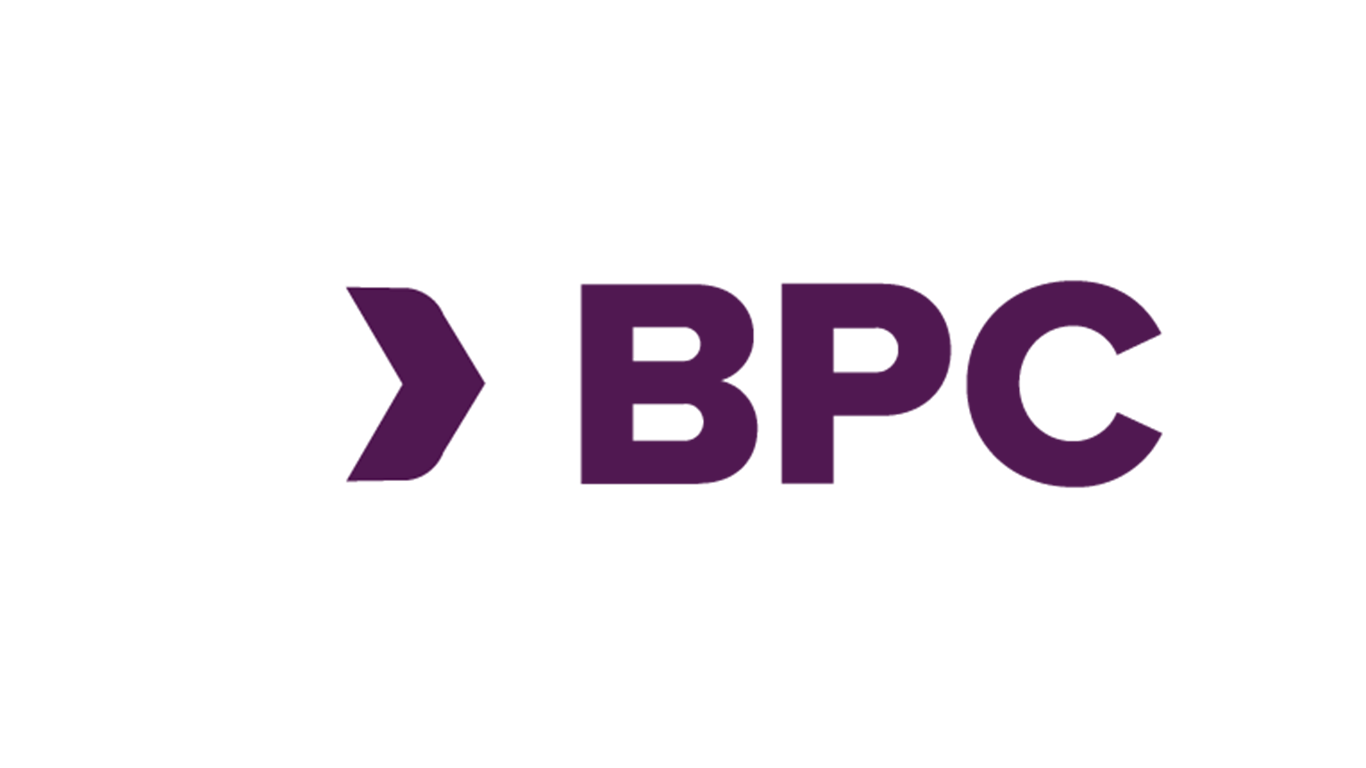
BPC, the global leading payment solution provider, has announced that Diners Club Peru will continue to work with its commerce suite as part of its innovation program.
Diners Club Peru, a prestigious and exclusive financial services organisation, has announced a new partnership with BPC to strengthen its position in the Peruvian payment market. Established over 50 years ago, Diners Club Peru is the issuer of the Diners and Discover card brands dedicated to high-net-worth Peruvians. The company has issued over 270,000 cards and has an acquiring network of over 1,600,000 merchants.
As part of its ongoing commitment to providing top-quality services to its customers, Diners Club Peru has consolidated transactions of payment networks such as Nubiz and Izipay and will soon launch BBVA. The current process involves onboarding POS, configuring rules for clearance and settlement for each Network, processing transactions for those networks, and generating report files – with more than 1.6 million terminals configured and 120,000+ transactions processed daily.
The first phase of the partnership aimed to improve Diners Club Peru's current business line, which involves processing transactions for acquiring networks. BPC will work with Diners Club Peru to improve the process of uploading and onboarding merchants sent by the networks, enhancing efficiency and user-friendliness. Implementing the SmartVista Fraud system is the next step, strengthening the company's fraud detection technology and enabling Diners Club Peru to become an acquiring network.
Pio Rosell, CEO, Diners Club Perú, commented, “This implementation has been a great effort to continue advancing in the market, which marks a new stage in the development of Diners Club Peru. Thank you very much for your support. This great achievement is worth celebrating. It has been 3.5 years of working together as a team. Now we are starting a new phase, and we will deliver more value to the payment system together, so we can continue to grow.”
Santiago Egas, SVP at BPC, said: “We are proud to have been chosen as Diners Club Peru's technology partner and to help them achieve their goals. Great work and efforts that were and are undeniably worth continuing to do together, with the aim of continuing to add victories that make a difference in Diners Club Peru's business in the country. Thank you all.“
Related News
- 04:00 am
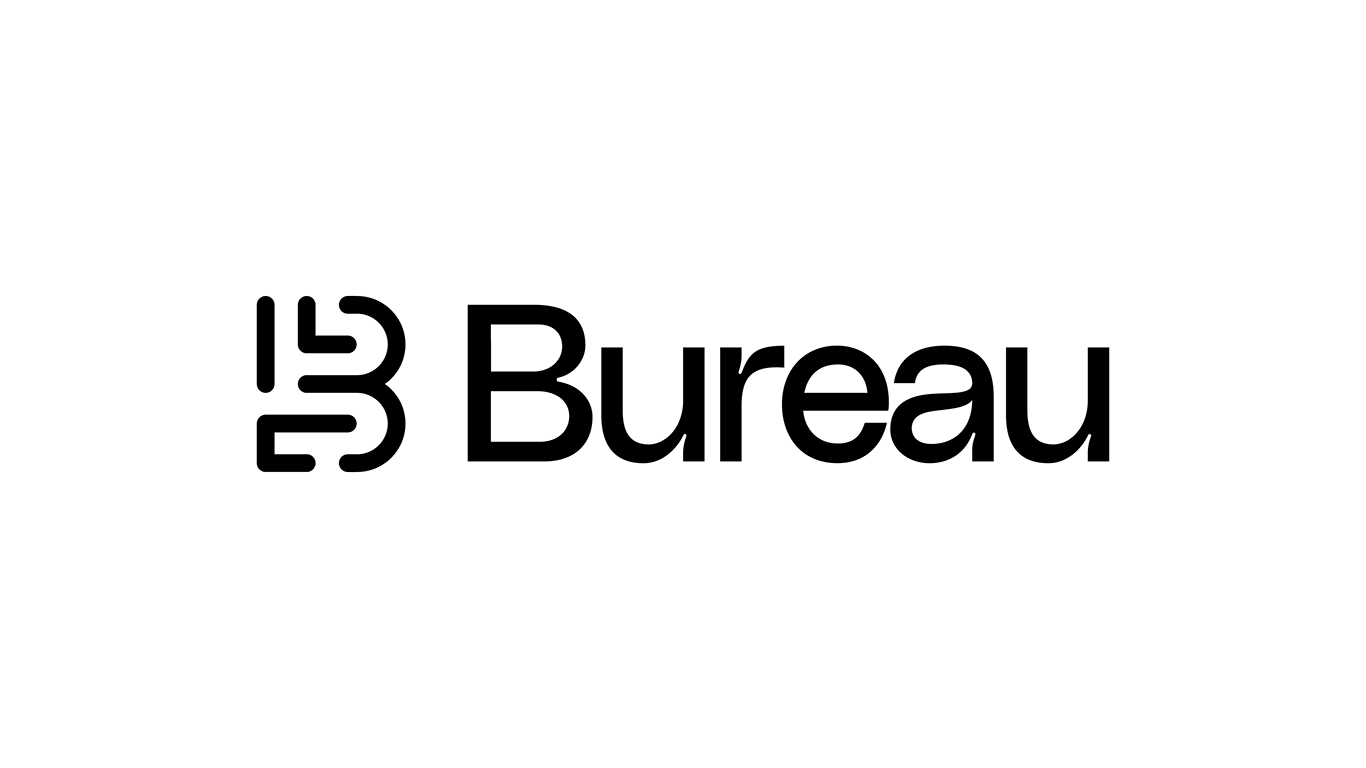
As businesses around the world expand and grow, they seek to understand who their customers are and if they can trust them. Helping them on this journey, fraud and identity decisioning platform Bureau is today announcing an additional $4.5m from GMO VenturePartners, GMO Payment Gateway, and existing investors to complete its series A funding round at $16.5m. With the completion of the latest round, total funding for the startup has reached $20.5m to date.
Founded in 2020, Bureau is a global identity decisioning platform for fraud prevention and compliance management. Businesses use the Bureau risk orchestration platform to manage compliance, and prevent fraud for their entire customer journey. Today the company serves customers across banking, fintech, insurance, the gig economy, and real money gaming among others. Bureau has increased customer and revenue numbers 6x in the last 12 months, with over 300m identities verified through its platform. The company is headquartered in San Francisco, with offices in India, Singapore, and Dubai
Bureau is the brainchild of Ranjan Reddy, who earlier founded payments startup Qubecell in Asia that was later acquired by Boku and Ranjan served as Chief Business Officer at Boku Identity (latterly acquired by Twilio). Bureau is the culmination of Ranjan’s two decades experience in innovating the customer journey and the start of a source of truth for a network of verified identities.
“We founded Bureau to build a single source of digital trust, " said Ranjan Reddy, CEO and founder of Bureau. “Our identity decisioning platform is purpose-built to orchestrate massive, disparate data to recognise, structure, and amplify risk signals in milliseconds so that customers can reach an absolute decision in real time. The outcome is material. Working with us, companies know who their consumers are, who they say they are and that they have good intentions, while consumers know their digital identities and privacy are safe and secure.”
In addition to the funding round, Bureau has completed the acquisition of inVOID, a YC-backed identity verification startup and agreed a strategic partnership with GMO Payment Gateway. Bureau intends to leverage this to enhance its global coverage, widen its IP scope and broaden its tech stack.
Ranjan Reddy added: “Compliance regulations are no longer limited to the banking sector. Nearly every sector – gig economy, crypto, gaming, ecommerce – faces regulations, some for the very first time. But companies cannot just rely on compliance. They need to know whether a digital identity, and their transaction is really who they say they are. So compliance + fraud prevention from one source, in the form of a trust network is highly valuable. This acquisition does just that. It adds to the distinct strengths of our device intelligence, behavioral AI, and no-code decisioning platform and brings additional KYC and compliance workflows to our real-time, AI-based capabilities. The synergies are a game-changer for companies because for the first time they have a clear view into whether a digital identity is trustworthy all orchestrated from a single platform.”
Gartner estimates that Cyber fraud will cost the world $1T annually by 2025 and it’s unsurprising that the market for fraud detection and prevention platforms is expected to reach $142B by 2028. 73% of this expenditure is borne by companies in the Banking, Financial Services, and Insurance sectors today.
Looking at the current fraud scenario, Ryu Muramatsu, Director/Founding Partner at GMO VenturePartners Inc. commented: “Ranjan and his team have displayed vision-market fit and have demonstrated the credentials it takes to succeed in the fraud and risk mitigation space. We are honored to back them and partner with them to take their identity decisioning platform for fraud prevention and compliance management globally. As an investor on both debt and equity sides, it’s clear to us that Fraud prevention is a key priority for Fintechs today and Bureau is in a great position to become the market leader in this space.”
Related News
- 05:00 am
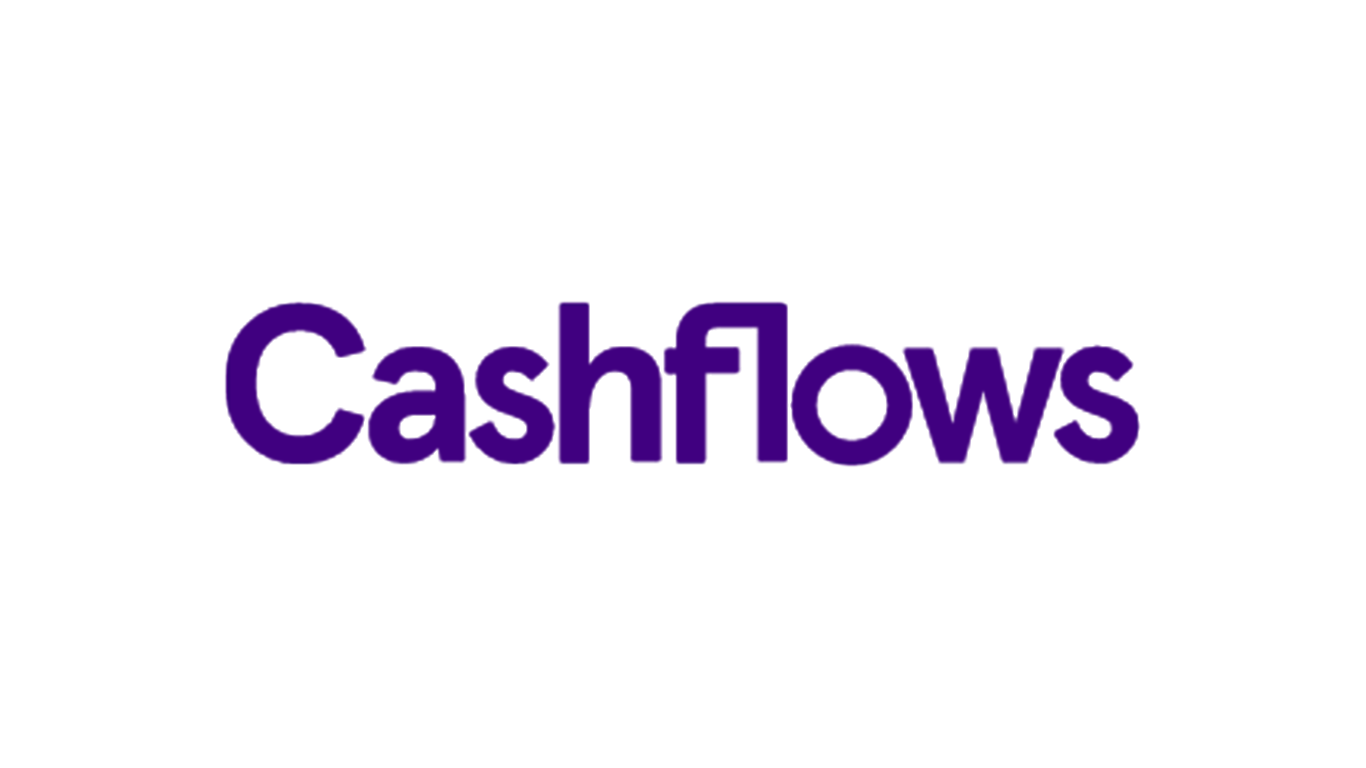
Cashflows, the platform that makes it easy for merchants to accept payments, today launches its new cloud-based in-person payments (Point of Sale) solution. The platform is designed for merchants, Independent Sales Organisations (ISOs), and Independent Software Vendors (ISVs) that want to offer merchants in all sectors a fast, reliable, and easy-to-use in-person payments solution.
Part of the Cashflows Payment Platform, the in-person solution supports a range of Android and Linux terminal types. Connection to WiFi and 4G networks comes out of the box, as does easy integration with ePOS systems. The device-agnostic solution is secure and complies with all relevant PCI standards. The solution is simple to use, with a transparent, flat monthly rate per device.
Cashflows’ new partner rental model enables ISOs and ISVs to offer best-in-class Android devices to retailers without needing to purchase devices upfront. This opens up new revenue streams with minimal servicing, upgrade, and compliance responsibilities, enhancing Cashflows’ already strong partner proposition. All terminals are integrated with Cashflows’ smart reporting portal, so merchants can access real-time online and in-person payment sales data in a single dashboard. This holistic view of business performance empowers merchants to understand and take action on the insights provided.
Paul Clarke, Chief Product and Innovation Officer, Cashflows, comments: “Cashflows' mission is to change the payments industry for the better, and our new in-person solution is designed to do just that. Despite the continued growth of eCommerce and mobile payments, in-person payments still account for 74% of all retail transactions in the UK. It’s clear that post Covid human interactions are valued more than ever by consumers and businesses, which is why we have developed an agnostic solution that delivers as seamlessly for financial services companies as it does for high-touch hospitality and retail businesses.”
“Accepting payments shouldn’t be complicated. We’ve developed a simple, flexible, and function-rich solution that partners and customers can use out-of-the-box, with no complicated setup. When combined with our omnichannel data portal and the expert human support of our teams, we’re enabling merchants and ISO and ISV partners to focus on what really matters – growing their business. This is payments, perfected by people.”
PIN pad POS devices, which integrate to a countertop or to an ePOS system through an API, and a proof of concept (POC) with card schemes for Tap on Phone functionality will be launched later in 2023. This will expand the flexibility offered to merchants by allowing users to employ their own devices as card terminals. Cashflows will be able to even further serve different types of businesses, including infrequent or seasonal sellers, small merchants, and large businesses that want a cost-effective way to expand their ability to take payments without spending on additional hardware. Further added-value functionality for the retail and hospitality sectors will be launched in 2024.
Related News
- 01:00 am
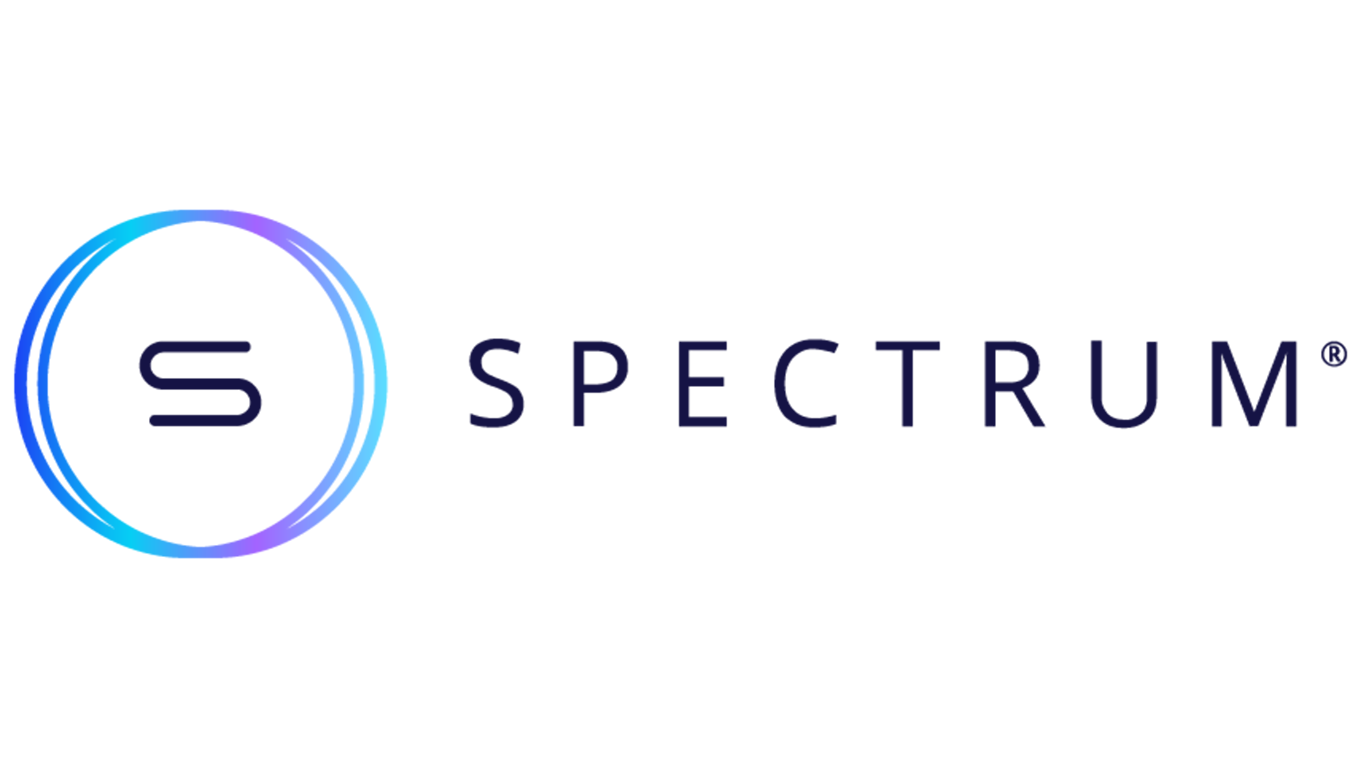
Spectrum Markets (“Spectrum”), the pan-European trading venue for securitised derivatives, has joined the German Derivatives Association (DDV), as a supporting member to underpin the association's work for structured products.
The DDV represents the issuers of structured securities to improve the political and regulatory framework for structured products in Germany and Europe and to contribute to the increasing level of private investors opting for certificates and warrants.
"The DDV membership is a significant strategic step forward for us as it is opening up the opportunity to participate in industry committees and working groups on regulatory initiatives and to share expertise developed from our pan-European trading network here" comments Nicky Maan, CEO of Spectrum Markets.









